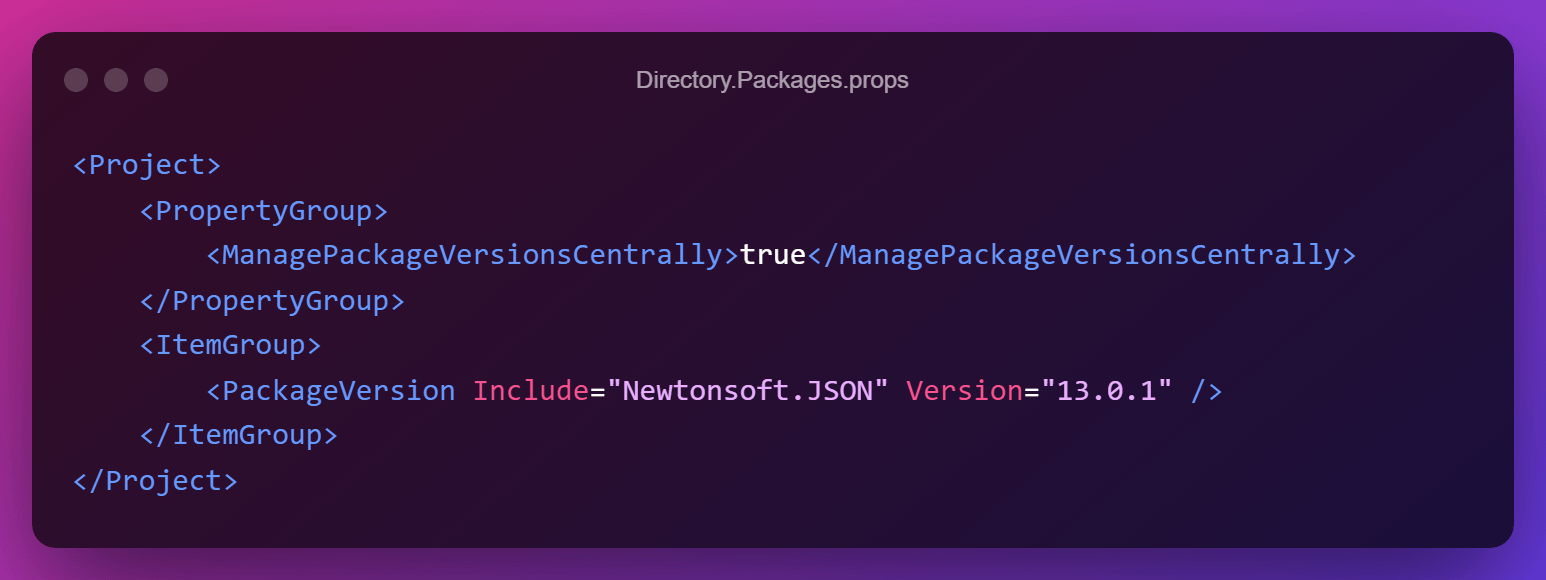5 things Microsoft needs to do to make Central Package Management widely used
There's no perfect governance model. But there's no doubt that a centralized authority model eliminates ambiguity and improves speed.
That's why Central Package Management has so many adopters across the language spectrum.
If you have ever used Paket, nothing here is new to you. What is new is that .NET now has an official Central Package Management. Why is that good? Because being a Microsoft solution, the chances of having proper tooling around it is enormous. And we know how the community tends to prefer tools coming from Microsoft. But this is not a game changer yet. The experience is not what we got used to in the .NET ecosystem. At least for now.
If Microsoft invests energy in that, this can be a game changer. The way that we manage dependencies may change forever.
Here we will see 5 things that need to happen to make this a success.
What is Central Package Management
Before we start, let's see what Central Package Management is.
With Central Package Management, you start defining your packages and their versions in a single centralized place (Directory.Packages.props). By doing that, you can control package versions used in a single place.

Then, each project will need to opt-in to the packages they need. They don't need to specify the version. That is already defined in the centralized definition.
If you want to see more about how it works, you can read the announcement here or take a look at Claire Novotny talk at NDC London.
Now that we know what is Central Package Management, let's take a look at why the existing solution, announced in April 2022, will not fulfill its prophecy. At least while some things aren't addressed. Let's take a look at 5 things that need to change so that can happen.
✅ The 5 things to do
1. Tooling
We know the importance of tooling in the .NET space.
Currently, the experience isn't good when using Visual Studio or the CLI.
Microsoft needs to provide a delightful experience for Visual Studio and CLI.
That will not only increase the adoption but also force other tools like Rider to adopt it as well.
2. CLI Experience
We got used to having CLI in our lives since .NET Core, and some of us can't live without it anymore. That means that Central Package Management can't be only a question of Visual Studio tooling but also part of the default CLI experience.
I expect that running a command inside a project with Central Package Management, and managing references act accordingly.
I get that it can be hard since the "Directory.Packages.props" file can live anywhere in the folder structure, but at least we should be able to achieve that through arguments or flags.
3. Migrations
The biggest benefit of centralized package management will be for the complex solutions. But, the cost of moving is high if we expect people to do it manually.
There are already some Open-Source tools like CentralisedPackageConverter, but having the migration as part of the CLI is one small step to removing friction.
4. Templates
We know the power of defaults. Microsoft is slowly convincing most of us that we don't need all that clutter in our "Program.cs" by changing the default templates.
If the same thing happens to package management, we will see adoption ramping up. Once again, it may be through the use of flags and arguments.
5. Samples
In the .NET world, it is easy to find good samples built by Microsoft that quickly become a how-to-do things reference.
Once we have proper tooling in place, this would be the next step.
Adopting Central Package Management in projects like eShopOnWeb. Seeing it in place will signal to the community that you can confidently adopt it.
⏭️ Wrapping up
If you are excited about managing dependencies centrally, I invite you to play around with Paket. An Open-Source tool in the space for a long time.
Central Package Management can be a game changer, but only if we see a perfect alignment between Tools and Default practices.
If that happens Package Management in .NET will be profoundly changed.
It's up to Microsoft.
Follow me on Twitter (@gsferreira), and let's keep in touch.